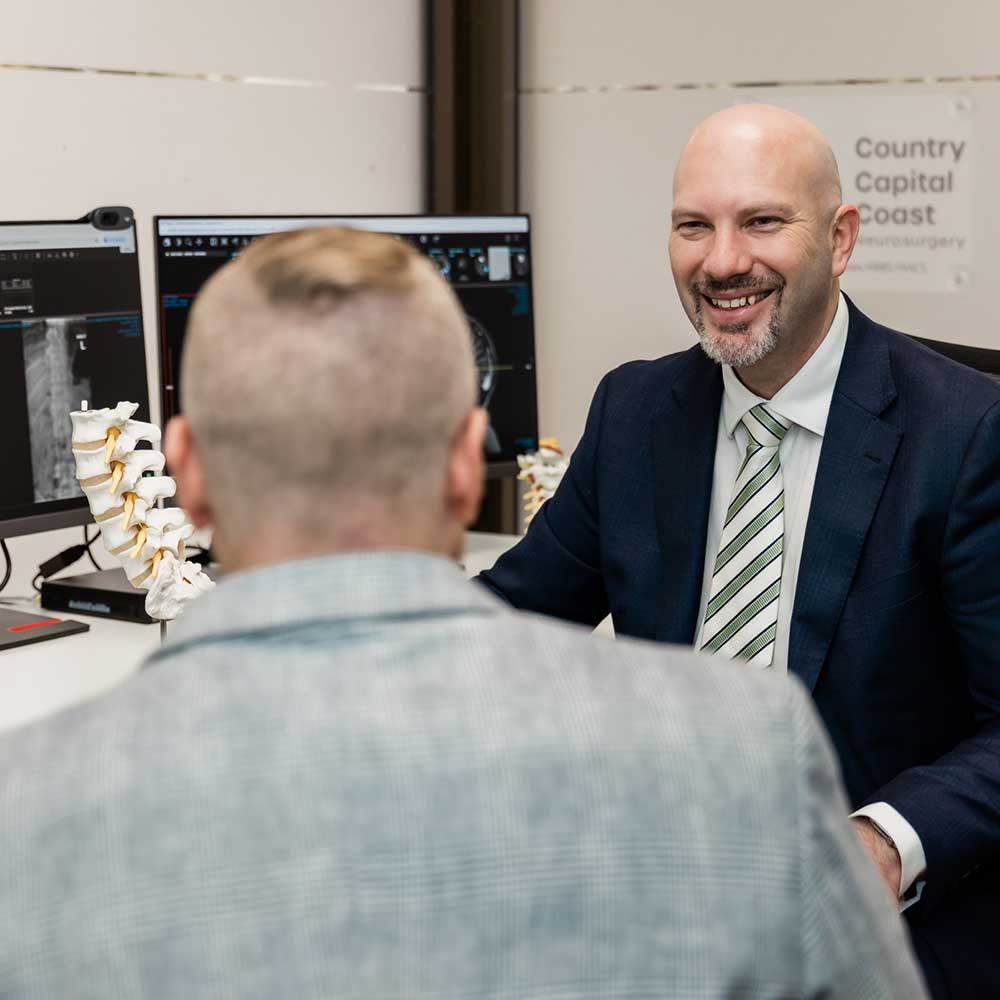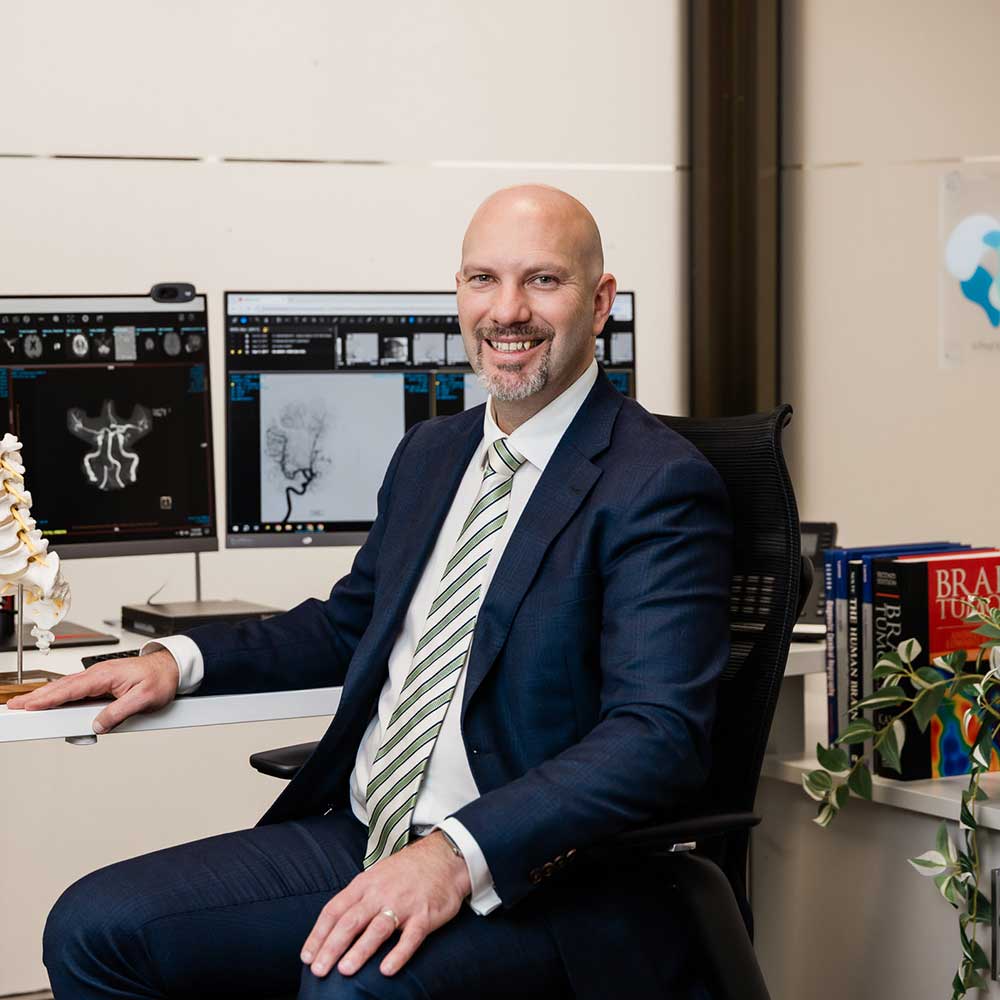Pituitary tumours are relatively common, accounting for around 10–15% of all brain tumours diagnosed in Australia. Most are benign, but because of their location, they can compress surrounding structures such as the optic nerves or disrupt hormonal balance.
A/Prof Peter Mews has advanced training in endoscopic pituitary surgery (neuroendoscopy), a minimally invasive approach performed through the nasal passages, which avoids external scars and allows precise removal of tumours with faster recovery. He regularly manages patients with pituitary disorders across Canberra, Wagga Wagga and the South Coast.
Pituitary surgery is performed to remove tumours or cysts affecting the gland when they cause symptoms or threaten vision and hormonal function.
The modern standard approach is endoscopic endonasal surgery, where a small camera and specialised instruments are passed through the nostrils to access the tumour directly.
Benefits of endoscopic pituitary surgery include:
Pituitary adenomas are benign tumours arising from the cells of the pituitary gland. They may secrete excess hormones or simply cause pressure on nearby structures.
Causes:
Symptoms:
Treatment options:
Craniopharyngiomas are rare, benign tumours that arise near the pituitary gland and hypothalamus. They often occur in children or young adults.
Causes:
Symptoms:
Treatment options:
These are benign cysts that form from remnants of embryonic tissue in the pituitary. They may remain silent or cause symptoms if they enlarge.
Symptoms:
Treatment options:
Several other lesions may involve the pituitary region and require surgery for diagnosis or treatment. These include:



Pituitary surgery requires exceptional skill and precision. The endoscopic endonasal approach, while minimally invasive, is technically demanding due to the proximity of the optic nerves, carotid arteries and normal pituitary tissue.
A/Prof Mews is fellowship-trained in endoscopic brain surgery, with a particular focus on pituitary and skull base tumours. His expertise ensures that patients benefit from state-of-the-art surgical techniques, delivered with a strong emphasis on safety and long-term outcomes.
By consulting across Canberra, Wagga Wagga and Moruya, he makes advanced pituitary surgery accessible to patients across the region, without the need for travel to major metropolitan centres. For many, this means timely diagnosis, effective treatment, and a faster return to normal life.